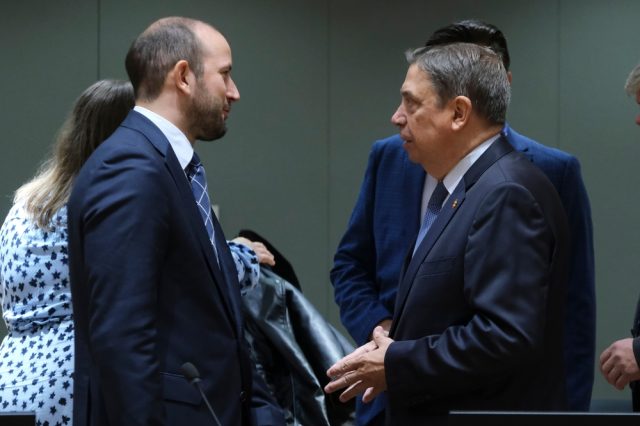
The European Union has signed five fully-fledged multiannual management plans with 20 neighboring countries on the Mediterranean coast to improve environmental sustainability and the protection of sensitive habitats. These measures agreed at the 45th meeting of the General Fisheries Commission for the Mediterranean in Tirana, are part of the principles of the Common Fisheries Policy.
EU members and Mediterranean coastal countries unanimously agreed on 21 measures for the management and control of fisheries, aquaculture, and the protection of sensitive habitats. With them, the EU seeks to curb overfishing and improve the status of some of the most valuable fish stocks in the sea basin, such as hake, sea bream, or deep-sea shrimp. They approved a grant of eight million euros per year to achieve these objectives.
The General Fisheries Commission for the Mediterranean seeks to ensure the profitability of the EU fishing sector and a level playing field for EU fleets. Therefore, the Twenty-seven have tried to consolidate the legal framework that encompasses the objectives of this Commission within the Regulation for the Mediterranean and the Black Sea 2023, which they intend to approve in December 2022. They have focused on the five plans signed in the four subregions that they considered “key” for the Mediterranean Sea: The Alboran Sea of the Western Mediterranean, the Strait of Sicily, the Ionian Sea, and the Levant Sea.
The Commission, EU members, and neighboring coastal countries approved, for the first time in history, a blanket ban on transhipment at sea to try to prevent illegal activities and those that are unregulated or undeclared. In the same vein, a new joint regime was adopted in the Ionian Sea, as well as an international regime, this time permanently, for the joint inspection of the Strait of Sicily.
The EU also wants to assess the potential impact of changing the depth limits of the current restrictions on fishing at depths below 1,000 metres. The Commission has made clear its intentions to introduce restrictions in shallower waters in the future. The assessment sought by the EU includes the distribution of vulnerable marine ecosystems and trawling, a type of fishing that accounts for 40% of global catches and carries more than one million tonnes of fish annually. This type of art generates approximately 40% of the total income of the region’s sector, contributing to the wealth and industrial fabric of Europe’s coastal and peripheral communities.
Overall, the 45th meeting of the General Fisheries Commission for the Mediterranean agreed to strengthen transitional management measures for small-scale fisheries, essential for the foundation of local communities, with a particular focus on the protection of European eel and red coral. The Commission also announced the intention of the Twenty-seven to set up an observatory of non-native species in the Mediterranean and Black Seas. For the first time, a plan for the management of recreational fisheries in the region has been adopted.
Regarding shared waters with Morocco and Algeria, the EU has agreed on a new roadmap in the Cablier Mound area of the Alboran Sea. This pact means the establishment of the first restricted zone shared with non-EU countries in terms of fisheries and includes both North African countries and Spain. They seek this international contract to protect the region’s sea bream, which is in danger. This agreement comes in the context of disagreement between Madrid and Brussels. Spain has criticized the latest European measures on fisheries and has announced that it will file an appeal with the Court of Justice of the EU to stop the application of the European Commission’s regulation on fisheries in certain vulnerable areas. Spain considers that Europe “has not respected the principle of proportionality” with the closure and prohibition of deep fishing of 87 sensitive areas of Northeast Atlantic waters, as communicated by the Spanish Minister of Agriculture and Fisheries, Luis Planas.



 Subscribe
Subscribe